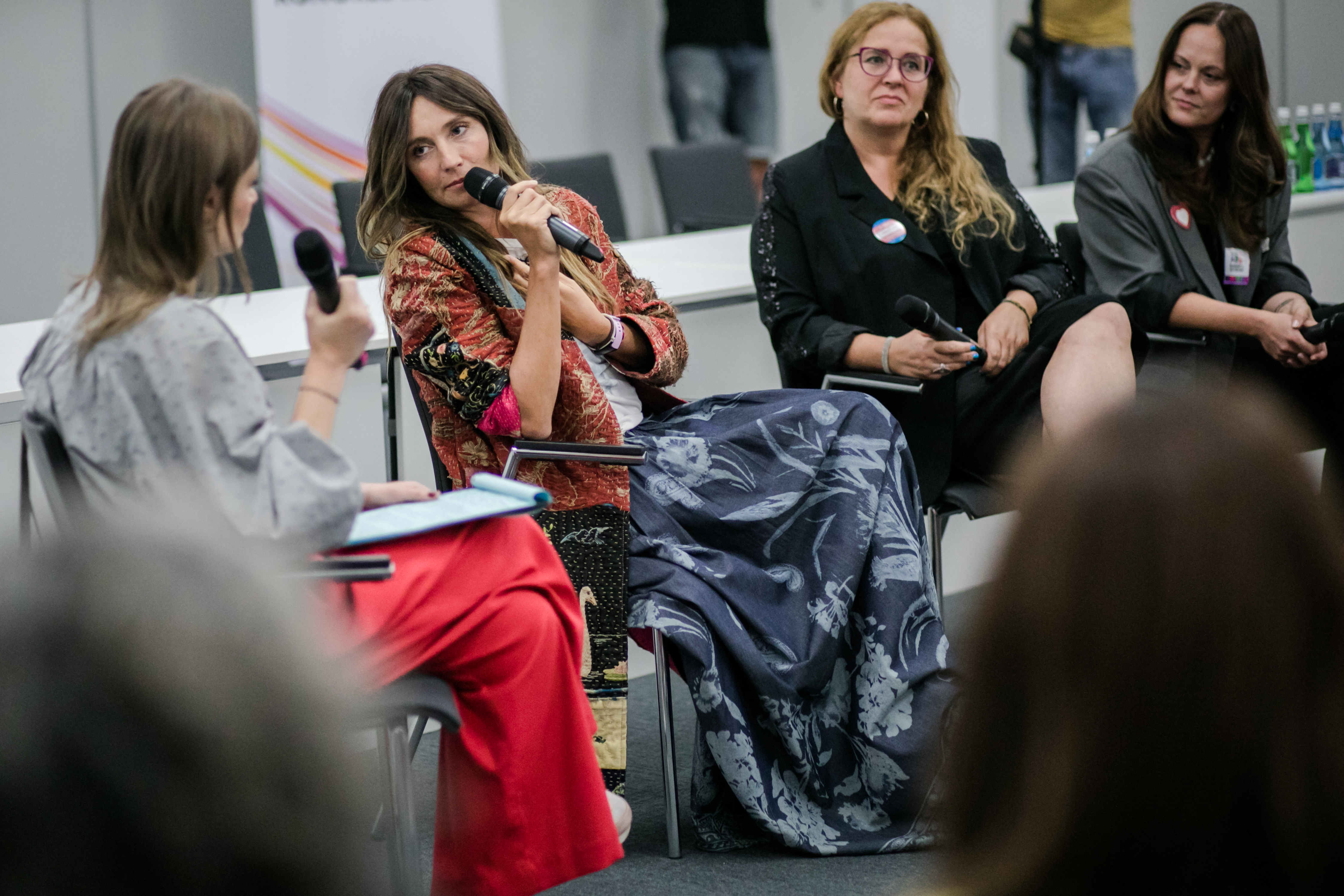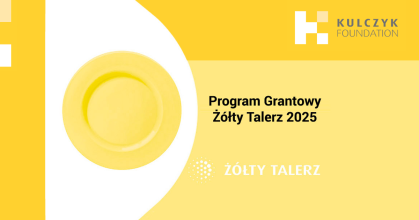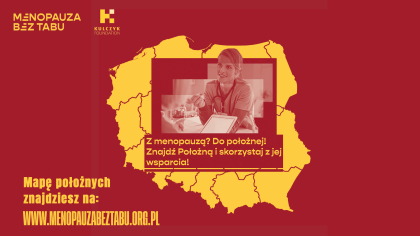Publication of the report aims at debunking stereotypes, providing knowledge, and provoking a discussion on the need for changes in medical education. Its purpose is to help women get through this difficult time in their lives with dignity.
‘At the Kulczyk Foundation, we recognise unaddressed issues that receive insufficient attention from the general public and official institutions. One of the most pressing of such issues is menopause, a phenomenon that affects many aspects of women’s lives. Despite its unmistakable importance, it is not sufficiently present in the public domain. We want our report to provoke a broad debate and become a spark to change the situation in this area’, explained Dominika Kulczyk.
Following a successful campaign on menstrual health, which was crowned by the submission of a bill to the Sejm to provide free access to menstrual hygiene products and menstruation-related education, the organisation has now focused on another issue important for women, yet still overlooked in the public domain. The complete disappearance of periods and the problems that occur before and after rarely get the attention of the media and are either virtually non-existent in cultural products such as movies, TV series or books, or they are subjected to derision and mockery. Where to get relevant knowledge and how to deal with menstruation are questions that are answered by the recently published report of the Kulczyk Foundation titled ‘Menopauza bez tabu’ [Open Talk About Menopause].
‘Women who have not yet entered this stage of life do not usually hear about it from significant women around them such as mothers, friends, or colleagues, because menopause is still taboo’, observed the authors of the report. Anna Buchner, Katarzyna Fereniec-Błońska, Agnieszka Murawska and Maria Wierzbicka-Tarkowska from ‘Ciekawość’ [Curiosity] research and development centre surveyed Polish women and men about menopause, and talked to experts. Their efforts resulted in a report that was presented on 2 September at the 15th Congress of Women in Poznań, attended by Dominika Kulczyk.
Challenges and Opportunities
‘Menopause brings changes to a woman’s life, body and psyche. These are natural processes accompanying her transition into the next stage of her life. Although different from the previous ones, this stage is associated with challenges but also new opportunities’, explained the President of the Kulczyk Foundation. ‘In order to face those challenges and seize opportunities, women need to learn about this experience and know where to seek help. Therefore, we commissioned a comprehensive report on menopause, and its publication launches a campaign that has a number of goals’, announced the entrepreneur and philanthropist.
In addition to providing Polish women with the necessary knowledge to help them through this difficult time of transition, the campaign aims to debunk stereotypes, change the language and attitudes around menopause, and make health professionals and policymakers realise the need for a change in the education of healthcare personnel.
Sources of Knowledge Beyond the Web
According to the report, 82% of Polish women are concerned about the symptoms of menopause, among which respondents most often cite hot flashes, sudden sweating, mood swings, tearfulness or irritability. Unfortunately, only a half of those surveyed are aware of hormone replacement therapy, considered by experts to be the most effective treatment for menopausal problems.
‘More than 70% of premenopausal Polish women rate their level of menopausal knowledge as “poor” or “hard to tell”. They most often learn about it from the Internet (46%) or from physicians (40%), with 54% of women surveyed convinced that doctors lack a holistic approach to menopause. They need a conversation about the changes that affect the entire female body, rather than just the reproductive system’, emphasised Joanna Maliszewska-Mazek from the Kulczyk Foundation.
The group of professionals that have the broadest knowledge on the subject, and are best qualified by virtue of their training to pass it on to women, are midwives. However, while 72% of women agree that in addition to caring for a woman during pregnancy, a midwife’s duties also include supporting women during menopause, only 3% would seek advice from a midwife during this time.
‘We want to reach out to women to tell them they can contact midwives for answers to their questions. However, the survey findings also suggest considering changes in the system of medical education so that women can get the necessary knowledge about menopause from healthcare professionals rather than mainly from the Internet’, added Joanna Maliszewska-Mazek.
Fear of Invisibility and Ridicule
According to the report, nearly half of all Polish women consider menopause a taboo. On the one hand, women want to talk about it with their doctors, partners or friends, and on the other – they are afraid of such conversations. Why is that? According to psychotherapist and psychosexuality educator Dr Alicja Długołęcka, who is quoted in the report, the underlying reason is fear about how they might be perceived. According to the expert, the common perception is that a woman in her fifties becomes ‘invisible’.
‘The fear is associated with losing one’s sexuality and being no longer matching the labels applied to young women – those of an athletic, slim body that fits a specific standard’, observed Dr. Długołęcka.
The language used to talk about menopause when the topic is brought up, does not help either. Two Polish words that carry a huge load of negative connotations and are very often associated with menopause, and which are seen by women as negative, are ‘przekwit’ and ‘przekwitanie’. ‘Przekwit’ is understood to mean being ‘overblown’ and is disliked by 71% of Polish women, and ‘przekwitanie’, which is taken to mean ‘withering’, is considered degrading by 71% of Polish women surveyed. During menopause, women can become anxious that perhaps their relationship with their partner will deteriorate, some of them face ridicule and disregard from those around them because of the visible symptoms of menopause. Particularly alarming are the findings related to menopause in the context of career: as many as 56% of women would never tell their employer or manager at work about their menopause.
‘We have a long way to go in this regard. We need to educate women because knowledge gives them peace of mind and confidence, and to encourage employers to be more sensitive and understanding in their relations with female employees’, said Dominika Kulczyk, for whom feminine perspective in business and support for women in areas of awareness, body and wellbeing have been crucial for a long time.
Withered, No! Fruitful, Yes!
Although the Kulczyk Foundation’s report brings up many difficult topics related to menopause, its tone is generally optimistic. While 45% of premenopausal Polish women cite negative associations with menopause, as many as 56% of postmenopausal women report neutral associations. Women also recognise benefits associated with this period – a half of them believe that menopause is a relief from monthly periods, from having to worry about unwanted pregnancy, and a time for them to focus on themselves and their needs, and start living their life to the fullest.
‘Women no longer want to think of menopause as the end of their opportunities. The time of life when we are physically fit and active in various areas is shifting to a more advanced age, so a woman in her fifties is no longer relegated to the role of a matron. And no woman aged 50+ would think that of herself today’, asserted the psychologist quoted in the report, Professor Eleonora Bielawska-Batorowicz.
‘In thinking about blooming and withering, let’s take fruit trees as an example. What happens when the flowers wither? The tree bears fruit. And I can see some of my patients are indeed reaping the fruits at this time of their lives – the fruits of their experience and their wisdom. Their children grown up, they often end toxic relationships and enter into new ones. It can be a fantastic time for a woman’, concluded another of the expert contributors to the report, gynaecologist Tadeusz Oleszczuk.
‘As we have seen with our menstruation campaign that likewise began with a pioneering report, we hope that this time too we can break the taboo surrounding this important topic for women. That is why we encourage everyone – not just women – to read our report on menopause. Let this be the first snowflake that transforms into a snowball effect of change in our attitudes, awareness, relationships and careers’, encouraged Dominika Kulczyk.
You can download the report here.





